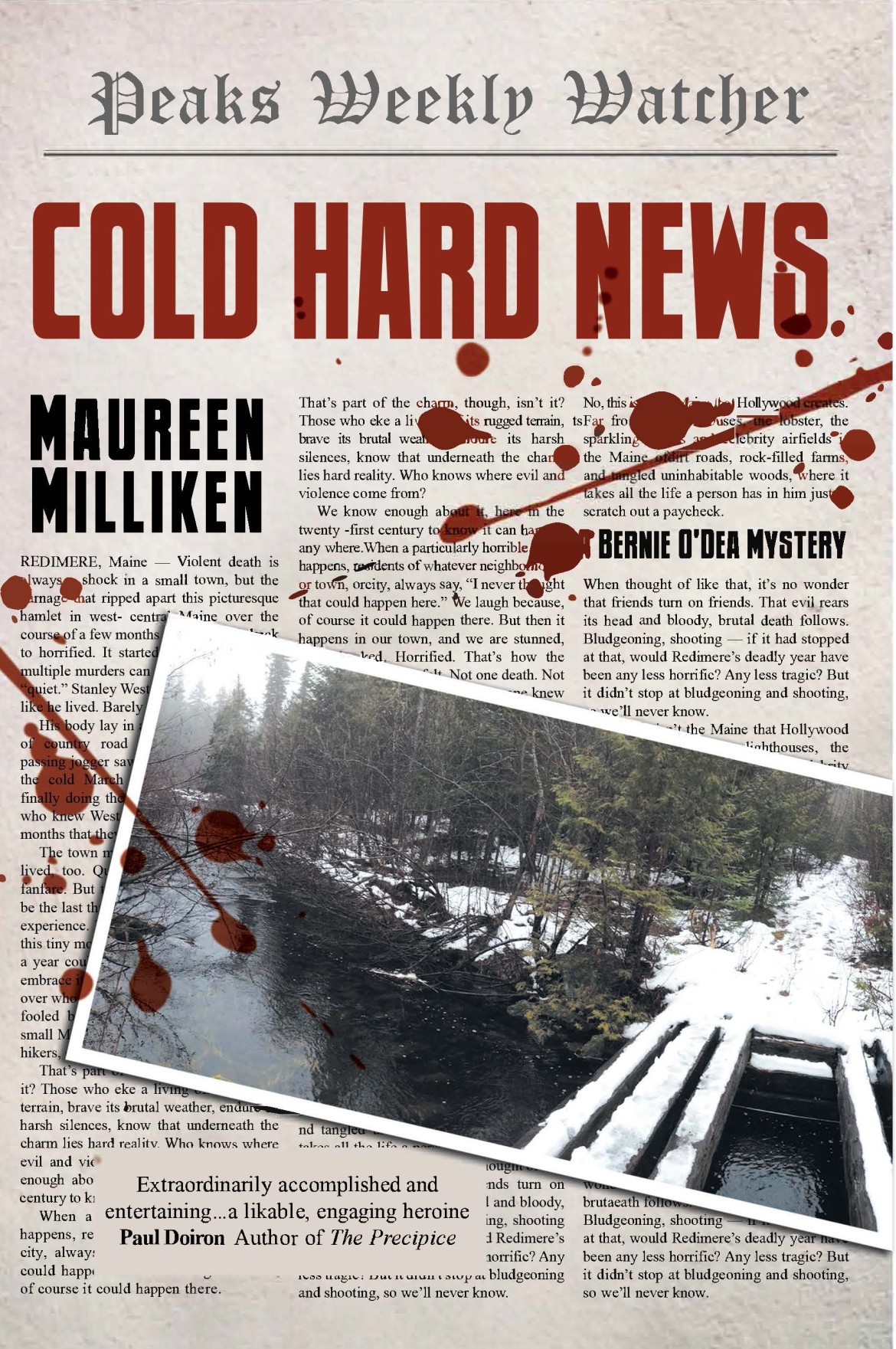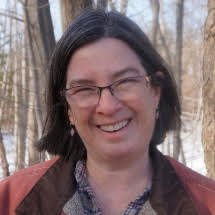
MANCHESTER, NH — Maureen Milliken spent more than two decades working for the New Hampshire Union Leader, first as a reporter and then as news and sports editor. She lived on the city’s West Side, and it was during that time that the kernels of inspiration for her debut mystery novel, “Cold Hard News,” were germinating.
The official book launch is June 6, and although Milliken has since moved to Maine, where she is news editor of the Kennebec Journal in Augusta, and the Morning Sentinel in Waterville, we wanted to pick her brain a little about what it feels like to be a published author.
Full disclosure: I worked with Milliken at the Union Leader, and can tell you that the book’s protagonist, newspaper editor Bernie O’Dea, bears a striking resemblance to Milliken, at least in spirit and spunk.
Her book is described as a “character-driven novel that forces the heroine, the editor of a weekly newspaper in remote Franklin County, to examine her motives and loyalty toward her friends while trying to find the truth behind a mysterious death in town. The challenges escalate when a double shooting involving a local ne’er-do-well and a police officer rip the town in half.”
As you will find out by reading on, that double shooting was also inspired by actual events here in New Hampshire.
“Cold Hard News” is available in both print and e-book formats, through S&H publishing.com and all online outlets and select bookstores. Book club discount: Book clubs get a 10 percent discount if delivery is to one recipient

Q. So, you worked in New Hampshire, right? How long?
A. I started at the Union Leader in 1986 and left in May of 2011, so that was around 25 years. I lived in Manchester, on the West Side, for most of that.
Q. Will we see Manchester and the Union Leader in the book?
A. Not so much Manchester or specifically the Union Leader. The protagonist, Bernie O’Dea, worked “out of state” for 20 years before buying a weekly newspaper in Franklin County, in Maine, but the book isn’t clear on where she was and it doesn’t seem like she was at the Union Leader. I didn’t really want to get specific about that, rather leave it to readers’ imaginations. Details on things like that can drag a story down. Since Bernie works at a weekly, not a city daily like the Union Leader, she doesn’t really work with the same kind of people.
What people WILL see is the influence of my 25 years at the Union Leader. I was 25 when I started there and left a week or so before my 50th birthday. So I grew up there. As much as I’ve always wanted to write a mystery novel, I also love journalism. It’s a vocation to me. And I wasn’t going to write a mystery novel without it also being about journalism. What people will see in the book is the influence of the people I worked with and my love for what we did. People won’t recognize individuals so much – except maybe one character named Carol 🙂 — as they will Bernie’s (and my) feelings about those years and the people I worked with. Oops, did I say I? Yeah, it’s fiction, but, I wanted to get the journalism part right.
Q. Do you think books don’t get that right?
A. Some do, some don’t. But there were things I wanted to say about what we do and how we do it. I’ll let the journalists who read it be the judge of how well I did.
Q. Did you draw from any specific experiences you had as a journalist in New Hampshire?
A. I sure did. Yeah. Little things and big things. People will recognize some asides are references to stories that we covered over the years. Some by me and some by others. A couple years ago, I listened to Lorna Colquhoun give a riveting narrative about the couple days she spent covering the Carl Drega shooting in Colebrook. I had to get that into the book because so much of it said so much about what we do.
Q. Do you feel that’s a little inside baseball for readers who may not care what journalists do?
A. I hope not. The book’s a mystery novel and I hope it’s good enough to keep people’s attention. But I also feel an obligation to the profession that’s sustained me, and was also my dad’s and grandfather’s. I want people to understand why we’re doing this.
Q. Any other big New Hampshire stories you worked into the book?
A. Actually, the big turning point in the plot – and I don’t want to give away too much here – stemmed from the unhappiness I had with the outcome of the Liko Kenney-Bruce McKay shootings in Franconia in 2007. I don’t want to say too much or give too much away, but the whole dynamic of the town’s reaction was interesting. More than that, I was really angry about how Gregory Floyd, the passerby who shot Kenney, was let off the hook without an investigation, by Kelly Ayotte, who was then attorney general. I won’t go into all the details here – your readers can look it up – but working that into the plot of the book and coming up with an outcome I could live with was my way of dealing with that.
Q. So, you lived in New Hampshire while writing the book?
A. Yeah, for the most part. I grew up in Augusta, Maine, and always wanted to set my mysteries in Maine because it has that Maine thing going on. I thought I’d finished the book before I left New Hampshire, but after I moved back up here – I live in the Augusta area – I started remembering a lot of little things about Maine I forgot, that added to the flavor of the book. The states are really different, even though they’re connected with each other. I did a few revisions, and up until last fall, was always adding things and rewriting. For instance, I worked the Drega reference in after that evening listening to Lorna, and that was maybe two or three years ago.
Q. So how long did it take you to write it?
A. There’s no easy answer. I started in 2008, but put it aside for whatever reasons. I picked it up again a year or so later and it took me around a year or a little less to “finish it.” Then I started looking for agents and publishers – not easy these days. And I moved here and even that got put on the back burner as other things came up. Then I decided to move it from one part of Maine to the other, and several years of revisions, while I was still looking for an agent or publisher, ensued. I felt it wasn’t really done until someone wanted to buy it. The last revision came in December or so when I added a very important four-legged character. But now it’s finally done.
Q. And so are we!
You’re one click away! Sign up for our free eNewsletter and never miss another thing








